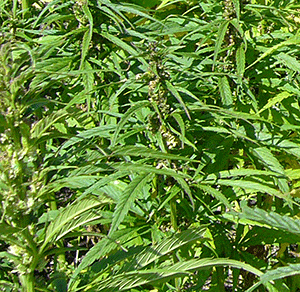 Ecopaper.com, Ventura, Calif., USA, a wholly owned subsidiary of SGD Holdings Ltd., this week said that it fully intends to continue its involvement in the marketing and distribution of hemp paper products in the U.S. and around the globe. Ecopaper.com has been marketing and distributing Hemp Paper Products for more than 12 years.
Ecopaper.com, Ventura, Calif., USA, a wholly owned subsidiary of SGD Holdings Ltd., this week said that it fully intends to continue its involvement in the marketing and distribution of hemp paper products in the U.S. and around the globe. Ecopaper.com has been marketing and distributing Hemp Paper Products for more than 12 years.
Harry Johansing, CEO, said that "I consider Ecopaper.com one of the few original and authentic companies to be involved in this industry." He added that "Ecopaper.com was involved in this industry before it was popularized by the recent moves among many states to legalize the use of cannabis for medical purposes and use of hemp for industrial purposes. All of these current changes are very exciting to us and we are closely monitoring the progress that is being made at the federal level to remove legal barriers in regard to the domestic cultivation, transportation, and processing of hemp products. With the recent passage of the 2014 Farm Bill another step has been taken, and as a country we are that much closer to the complete legalization of domestic hemp production. Ecopaper.com intends to be first in line, our distribution infrastructure is already in place and I see a time in the future where the company will not have to depend on importing hemp paper products from places as far away as India. We will be able to freely obtain hemp that is cultivated domestically and transport this material to paper mills across North America with no restrictions and then use our proprietary formulas to manufacture hemp paper products ourselves. This will dramatically reduce our costs and allow us to fully monetize our existing distribution outlets. Once again, our commitment of creating 100% tree free paper products will be realized and our end goal of achieving a sustainable planet will be that much closer."
So far in the 2014 legislative season, industrial hemp legislation has been introduced or carried over in 13 states: Arizona, Hawaii, Indiana, Mississippi, Nebraska, New Jersey (carried over from 2013), New York, Oklahoma, South Carolina, Tennessee, Washington (two bills carried over from 2013), West Virginia, and Wisconsin.
In addition to the Farm Bill amendment, two standalone industrial hemp bills have been introduced in the 113th Congress so far. H.R. 525, the "Industrial Hemp Farming Act of 2013," was introduced in the U.S. House on Feb. 6, 2013, and the companion bill, S. 359, was introduced in the U.S. Senate soon thereafter on Feb. 14, 2013. The bills define industrial hemp, exclude it from the definition of "marihuana" in the Controlled Substances Act (CSA), and give states the exclusive authority to regulate the growing and processing of the crop under state law. If passed, the bills would remove federal restrictions on the domestic cultivation of industrial hemp.
To date, 32 states have introduced pro-hemp legislation and 20 have passed pro-hemp legislation. Ten states (California, Colorado, Kentucky, Maine, Montana, North Dakota, Oregon, Vermont, Washington, and West Virginia) have passed industrial hemp farming laws and removed barriers to its production. These states will be able to take immediate advantage of the industrial hemp research and pilot program provision, Section 7606, of the Farm Bill.
Three states (Hawaii, Kentucky, and Maryland) have passed bills creating commissions or authorizing research. Nine states (California, Colorado, Illinois, Montana, New Hampshire, New Mexico, North Dakota, Vermont, and Virginia) have passed resolutions. Finally, eight states (Arkansas, Illinois, Maine, Minnesota, New Mexico, North Carolina, North Dakota, and Vermont) have passed study bills. However, despite state authorization to grow hemp, farmers in those states still risk raids by federal agents, prison time, and property and civil asset forfeiture if they plant the crop, due to the failure of federal policy to distinguish non-drug oilseed and fiber varieties of cannabis (i.e., industrial hemp) from psychoactive drug varieties (i.e., "marihuana").
TAPPI
http://www.tappi.org/